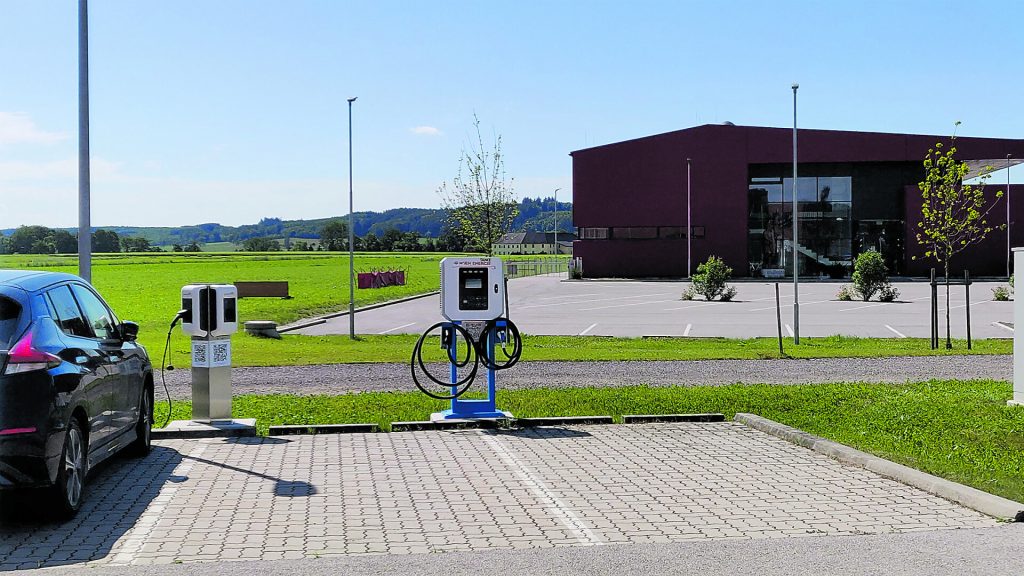Since 2020, the local energy network and research laboratory “Microgrid Lab 100% Renewable Energy” have been available at the Technology and Research Center (TFZ) Wieselburg-Land. Existing technologies such as wood-chip boilers, heat pumps, absorption chillers and heat storage have been linked with the newly installed photovoltaic power system and battery storage. In the fall of 2021, in cooperation with project partner Wien Energie, charging stations for electric vehicles were added, which are freely available to employees of companies located in the TFZ and their customers during the course of the project.
In the research project, intelligent and forward-looking control algorithms are developed to control charging stations and to optimize the use of synergy with the PV system and battery storage. As a result, renewable electricity is used locally in the best possible way, which saves costs, avoids carbon dioxide emissions and eases grid connectivity.
“The research project makes it possible to develop new methods of operating charging stations and better integrate them into the power system. With the increasing electrification of car traffic and the expansion of the network of charging stations, prediction of user behavior and optimum control have become important,” says Sasha Zabranski, Head of Communications and New Business Areas at Wien Energie. increasing”.
Since the charging infrastructure was installed, users have been supplied with electricity for a range of about 40 thousand km. This corresponds to an emissions saving of about 8,300 kg CO2-eq compared to operating a small car with a combustion engine. says Stefan Aigenbauer, BEST Research Laboratory Project Manager.

“Total coffee aficionado. Travel buff. Music ninja. Bacon nerd. Beeraholic.”








More Stories
Wealthy families take more risks when it comes to money.
Salesforce and NVIDIA Form Strategic Collaboration to Drive AI Customer Innovation
Changing banks causes problems for customers